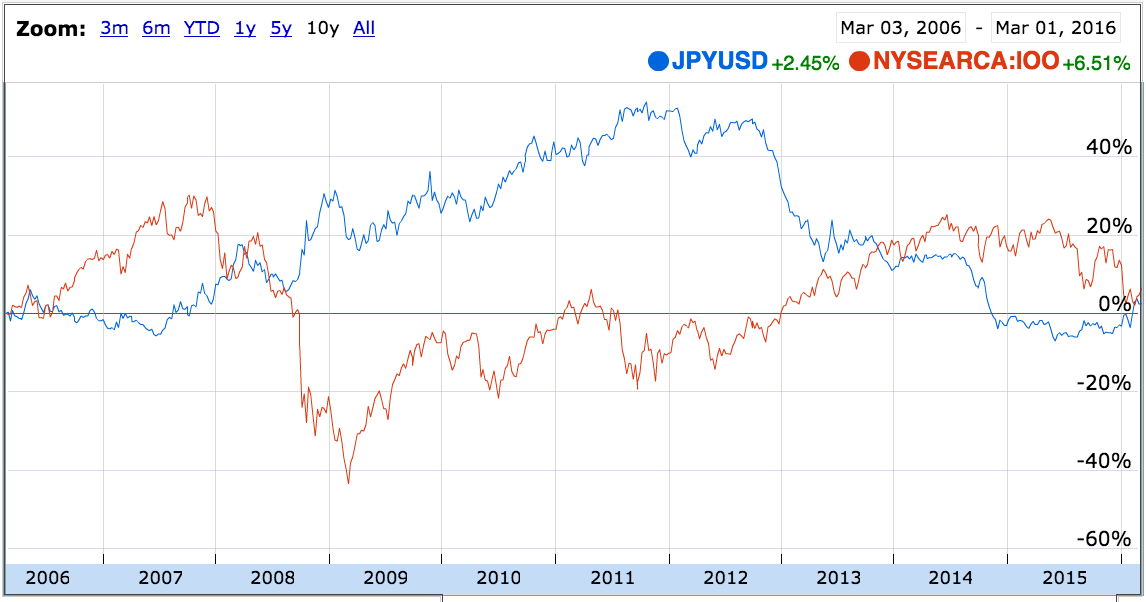The currency behind the third largest economy has, for a long time, been considered a safe haven currency. When global investors become more risk adverse, the value of the yen quite regularly tracks higher.
The following graph demonstrates the strong negative correlation between returns to the iShares Global 100 ETF (NYSE:IOO) and the JPY/USD currency pair.  Figure 1 Source: Google) Finance
Figure 1 Source: Google) Finance
As the global share market (represented by the Global 100 ETF) performs poorly the yen tends to gain strength. This demonstrates the quality of yen as a safe haven currency.
There are several characteristics that the yen observes that make the yen a good currency to be a safe haven investment. Japan is the third largest economy, and subsequently the yen retains the title for the third most traded currency. Japan has had low interest rates for a long time and a strong net foreign asset position. Liquid financial markets, low interest rates and a strong trade position make the Japanese yen a suitable investment for investors who become more risk adverse.
The recent devaluation of the yuan due to the Chinese market collapse depreciated many Asian currencies but the yen has actually gained against the USD since the collapse of the yuan. The demand from more risk averse investors rushing into the yen for a safe haven investment outweighed the effects from the struggling Asian neighbour.
Until late January, Kuroda (governor of the Bank of Japan), showed no intention of cutting interest rates to below zero. The announcement to reduce interest rates to -0.1% made in late January was unexpected and shocking to many economists. Markets reacted intuitively and the value of the yen briefly declined. However, the yen quickly retraced any losses from the announcement of negative interest rates and actually gained against the USD. Negative interest rates encourage investors to put their money to work in the economy. Large investors and hedge fund managers might see this as an opportunity for Japan’s economy to make a recovery.
The move from Japan to change interest rates to below zero has shown the Bank of Japan is willing to do what ever it takes to achieve inflation of 2%. With global economies weakening the yen has been the benefactor of more risk adverse investors demanding the safe haven currency. However, Goldman Sachs does not agree with the recent rally in the yen and stated “that portfolio rebalancing (out of JGBs into risk assets, including other currencies) is underway in Japan, which is a force for a weaker yen even before additional BOJ easing (which we anticipate) is taken into account”.
With interest rates at -0.1%, investors will be encouraged to put their money elsewhere to earn a positive return, including foreign investments (weakening the yen) but if the investors increasingly become more risk adverse there may be a pull on the yen in opposite directions. Only time will tell whether the efforts by the Bank of Japan will be effective and whether the outflows from Japanese government bonds will trump the demand from the safe haven investors.
